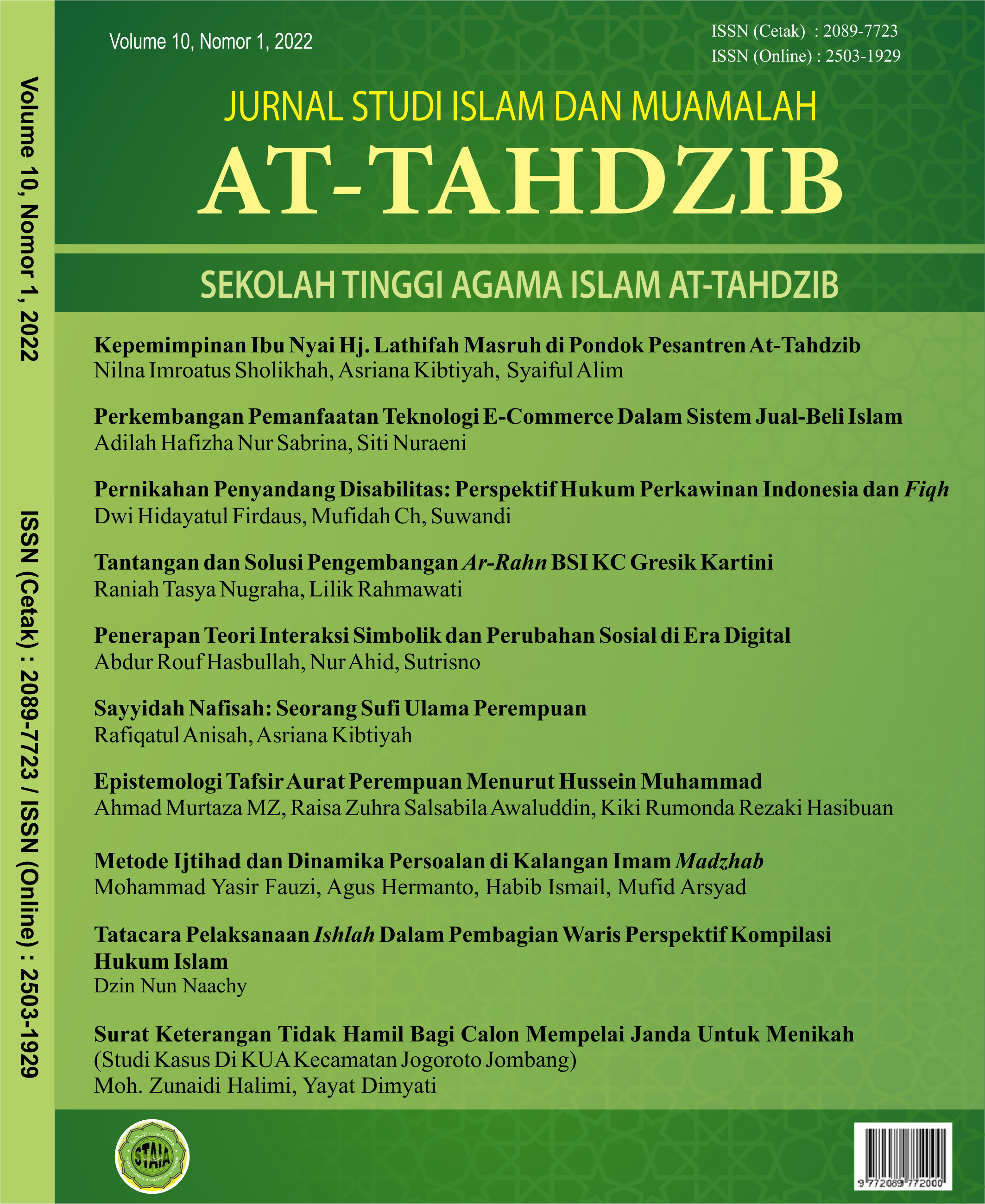Perkembangan Pemanfaatan Teknologi E-Commerce Dalam Sistem Jual Beli Islam
Abstract
Background. The utilization of internet technology, computers, and or other electronic devices in the buying and selling system is now a new 'trend' in society. However, it should be noted that in muamalah (Islamic trade law), the process of buying and selling transactions was regulated.
Aim. This study examines the use of e-commerce and its laws in the Islamic buying and selling system.
Methods. Data collection is conducted by library research whose work pattern is qualitative and descriptive. Primary and secondary data sources come from empirical data, namely various literature sources on matters relating to research problems.
Results. E-commerce is a form of economic interaction (muamalah) for which there are no concrete provisions in the Qur'an and the Sunnah of the Prophet SAW so that in the process it must meet the conditions of sale and purchase that have been outlined in Islam. Buying and selling online through e-commerce is defined as a sale and purchase transaction as-salam and al-istishna so that e-commerce transactions are allowed in Islam as long as they avoid things that make them unlawful. In addition, e-commerce transactions are the same as buying and selling transactions in the real world, that is, as long as like is the same as like, then the law is halal.
References
Alimin, Muhammad. (2004). Etika dan perlindungan konsumen dalam ekonomi Islam. Yogyakarta: BPFE.
Barkatullah, Abdul Halim. (2008). Hukum perlindungan konsumen kajian teoritis dan perkembangan pemikiran. Bandung: Nusa Media.
Dwi, Martiwi. (2014). Perdagangan elektronik (e-commerce) dalam perspektif Islam. Jurnal Unida Gontor, 8, 2.
Ghazaly, Abdul Rahman, dkk. (2010). Fiqh Muamalat. Jakarta: Kencana.
Hasan, Akhmad Farroh. (2018). Fiqih muamalah dari Klasik hingga kontemporer. Malang: UIN- Maliki Press.
Hidayah, A. (2019). Jual beli e-commerce dalam perspektif Islam. Solusi, 17, 1, 84-93
Iska. (2010). E-commerce dalam perspektif fiqih ekonomi. Juris, 9, 2.
Karyatiningsih, Ripah . (2011). Penerapan e-commerce dalam menunjang strategi bisnis perusahaan kasus di PT. Cheil Jedang Superfeed (CJS). Makalah, Program Pasca Sarjana Manajemen dan Bisnis ITB, Bogor.
Kurniawati, Anisa Dwi. (2019). Transaksi E-commerce dalam perspektif Islam. el Barka: Journal of Islamic Economic and Business, 02, 01.
MCLeod, R. (2008). Teknik informasi manajemen, 10th edition. Jakarta: Salemba Empat.
Sayyid Sabiq, (.th). Fiqh al-Sunnah, Jilid 12. Terj. H. Kamaluddin, A. Marzuki. Bandung: AlMa’arif.
Sugeng. (2017). E- Commerce sebagai pendukung pemasaran. Jurnal Sistem Informasi Universitas Suryadarma, 4, 1.
Suhendi, Hendi. (2016). Fiqih Muamalah. Jakarta: Raja Grafindo Persada.
Wirapraja, A., Handy, Aribowo. (2018). Pemanfaatan e-commerce sebagai solusi inovasi dalam menjaga sustainability bisnis. Teknika, 7, 1.
Ya’kub, Hamzah. (1992). Kode etik dagang menurut Islam (Pola pembinaan hidup dalam berekonomi). Bandung: Diponegoro.
Copyright (c) 2022 At-Tahdzib: Jurnal Studi Islam dan Muamalah

This work is licensed under a Creative Commons Attribution 4.0 International License.

Jurnal Studi Islam by At-Tahdzib is licensed under a Creative Commons Attribution 4.0 International License.
Based on a work at http://ejournal.kopertais4.or.id/mataraman/index.php/tahdzib








